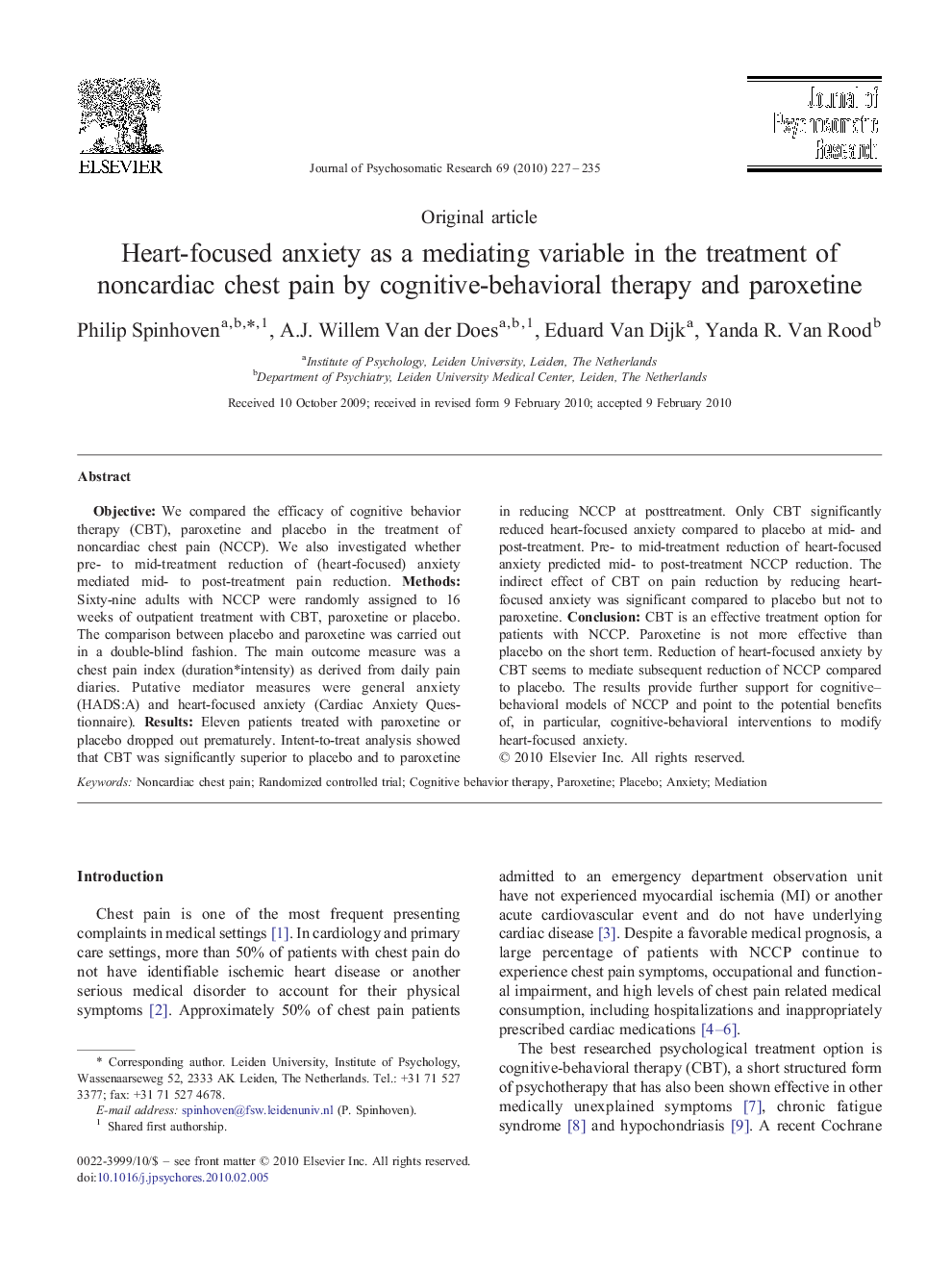| Article ID | Journal | Published Year | Pages | File Type |
|---|---|---|---|---|
| 949875 | Journal of Psychosomatic Research | 2010 | 9 Pages |
ObjectiveWe compared the efficacy of cognitive behavior therapy (CBT), paroxetine and placebo in the treatment of noncardiac chest pain (NCCP). We also investigated whether pre- to mid-treatment reduction of (heart-focused) anxiety mediated mid- to post-treatment pain reduction.MethodsSixty-nine adults with NCCP were randomly assigned to 16 weeks of outpatient treatment with CBT, paroxetine or placebo. The comparison between placebo and paroxetine was carried out in a double-blind fashion. The main outcome measure was a chest pain index (duration*intensity) as derived from daily pain diaries. Putative mediator measures were general anxiety (HADS:A) and heart-focused anxiety (Cardiac Anxiety Questionnaire).ResultsEleven patients treated with paroxetine or placebo dropped out prematurely. Intent-to-treat analysis showed that CBT was significantly superior to placebo and to paroxetine in reducing NCCP at posttreatment. Only CBT significantly reduced heart-focused anxiety compared to placebo at mid- and post-treatment. Pre- to mid-treatment reduction of heart-focused anxiety predicted mid- to post-treatment NCCP reduction. The indirect effect of CBT on pain reduction by reducing heart-focused anxiety was significant compared to placebo but not to paroxetine.ConclusionCBT is an effective treatment option for patients with NCCP. Paroxetine is not more effective than placebo on the short term. Reduction of heart-focused anxiety by CBT seems to mediate subsequent reduction of NCCP compared to placebo. The results provide further support for cognitive–behavioral models of NCCP and point to the potential benefits of, in particular, cognitive-behavioral interventions to modify heart-focused anxiety.
